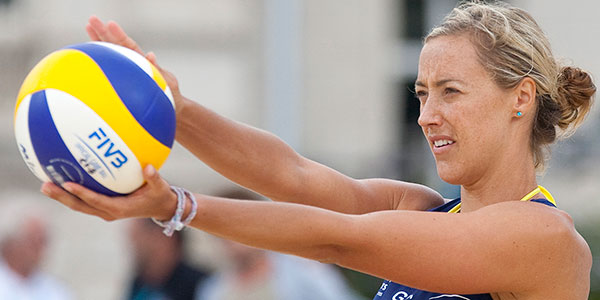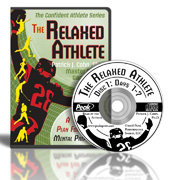
How Often have ‘What Ifs’ Bombarded Your Mind Before A Competition?
Rarely are what-ifs positive.
Athletes hardly ever think, “What if I sink the next shot and win the game in overtime?” or “What if I upset my opponent and win the tournament?”
Instead, what-ifs are usually negative:
- “What if I choke today?”
- “What if I let my team down?”
- “What if I don’t qualify for finals?”
These internal questions are both confidence destroyers and performance-crushers.
Even worse are what-if thoughts that occur during a competition, such as “What if I don’t land this dismount?” “What if I give up a game-winning hit to this batter?” “What if I double fault and lose this set?”
“What ifs” are another name for doubt. When doubt becomes overwhelming, you lose trust in your ability and play it safe.
What is the solution to the what-if problem? The answer is to either change the content of your thoughts or find a way to calm your mind.
You can change the content of your thoughts by telling yourself:
- “What if I win this match?”
- “What if I achieve a personal best?”
- “I’ve trained hard for this competition. I’m ready.”
- “Who knows what I can accomplish today.”
You can calm your mind by applying any number of relaxation strategies: Deep breathing, visualizing staying calm during the competition, listening to slow-tempo music, etc.
The key is to know the strategies that work for you. So you will want to try different strategies until you find the relaxation strategies that feel comfortable for you.
No matter the strategies you use, it is your mental game that helps you overcome doubt and perform under pressure.
The mental game has been important for Jacksonville Jaguars tight end, Evan Engram. After a game where Engram had 11 receptions, 162 yards, and two touchdowns, Engram was asked about the key to performing at a high level.
ENGRAM: “Once you learn some things mentally that you can apply on the field or in a profession or whatever you do, you kind of learn how to become mentally trained and use it to your advantage…
It’s a good tool to have. And so as opportunities came, making plays, getting downfield, making plays with the ball in our hands, (yards after the catch) stuff, that confidence goes up…
But also, it’s important to kind of stay in the moment, stay centered, and focus on your breathing and just be ready for the next play because, a good play or bad play, you want to continue to move on.”
Mental tools to help you be successful are a necessary component to your performance. The first step to overcoming what-ifs is to determine when these doubts occur.
What common challenges or situations cause you to doubt your abilities?
Recall past competitions and look for similarities when doubts interfere with your performances.
What do you say to yourself when doubting? Write these down. Practice refuting each doubt you listed so you can replace it.
Discover the triggers that foster your what-ifs and be ready to rebut your doubts.
Related Sports Psychology Articles
- The Mindset to Perform at a Higher Level
- Having Fun While Performing at Your Best
- The Importance of Mental Toughness
*Subscribe to The Sports Psychology Podcast on iTunes
*Subscribe to The Sports Psychology Podcast on Spotify
Download a free sports psychology report to improve your mental game!
Learn more about our one-on-one mental game coaching.

The Relaxed Athlete
You can possess all the physical talent in the world, the best equipment money can buy, and train harder or longer than anyone else in your sport or on your team, but if self-doubt enters your mind prior to competition, you simply will not realize your true potential in sports.
The Relaxed Athlete” audio and workbook program teaches you mental strategies to develop a focused and confident pregame routine for a poised and relaxed mindset. Learn how to get your mind right by overcoming pregame anxiety and worry.
